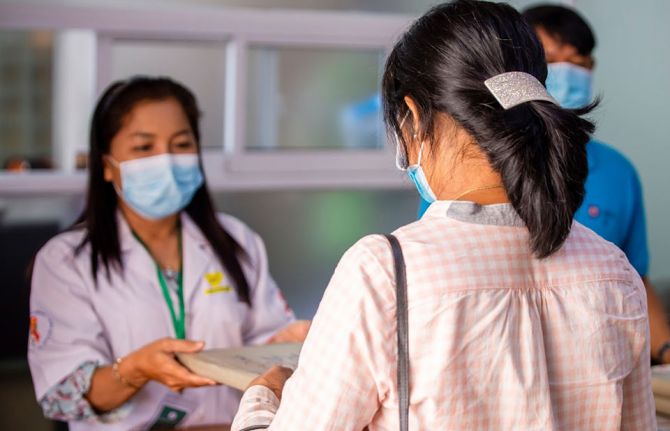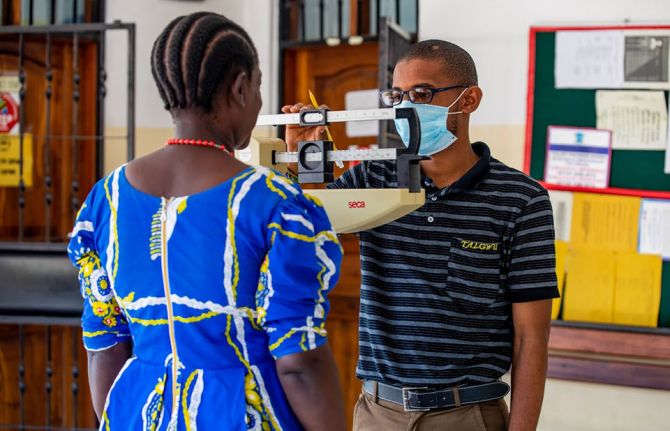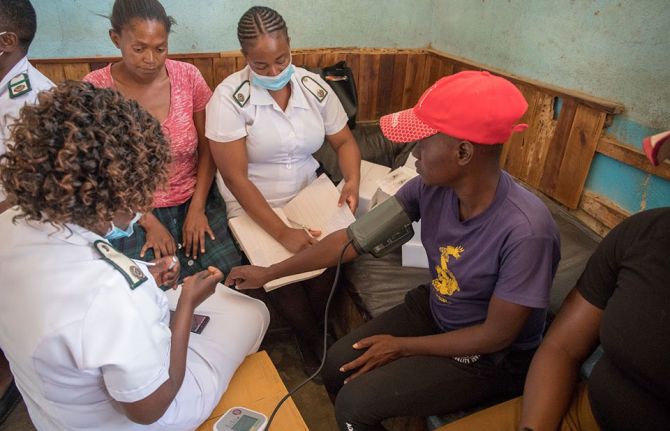



Press Statement
UNAIDS calls for rights-based and people-centred universal health coverage
12 December 2020 12 December 2020GENEVA, 12 December 2020—The world is only 10 years away from the deadline for the universal health coverage target of the Sustainable Development Goals. Only 10 years away from when everyone should have access to quality essential health services and access to safe, effective, quality and affordable essential medicines and vaccines. But that target seems as far away as ever. In 2017, less than half of the world’s people were covered by essential health services, and if current trends continue it is estimated that only 60% of the global population will enjoy universal health coverage by 2030.
On Universal Health Coverage Day, UNAIDS is calling for the world to meet its obligation— universal health coverage, based on human rights and with people at the centre.
“Health for all: protect everyone” is the theme for this year’s Universal Health Coverage Day, making it clear that health is a fundamental human right.
“It’s a disgrace that inequalities are still impacting the ability of people to access health care,” said Winnie Byanyima, UNAIDS Executive Director. “Health is a human right, but it is so often denied, especially to the most vulnerable, the marginalized and the criminalized.”
Someone’s socioeconomic status, gender, age, sexual orientation, citizenship or race can affect their ability to access health services. Like the HIV response, equality lies at the heart of universal health coverage and progressing towards universal health coverage means progressing towards equity, social inclusion and cohesion. A rights-based and people-centred approach to universal health coverage can help to ensure equitable health for all.
COVID-19 has shown that public health systems have been neglected in many countries around the world. In order to promote health and well-being, countries need to invest in the core functions of health systems, including public health, as common goods for health.
“Money should never determine someone’s access to health,” added Ms Byanyima. “No one should be pushed into poverty by paying for health services. User fees must be abolished and health for all paid for from public funds.”
Even before the COVID-19 pandemic hit, the global AIDS response was off track, in part because of a long-term underinvestment in health systems. Universal health coverage and the end of AIDS cannot be achieved and sustained without resilient and functioning health systems that can respond to the needs of everyone, without stigma and discrimination.
The HIV response has shown that communities make the difference. During the COVID-19 pandemic, community-led organizations, including communities of people living with HIV, around the world have mobilized to protect the vulnerable, working with governments to keep essential services going.
Communities have campaigned for multimonth dispensing of HIV treatment, organized home deliveries of medicines and provided financial assistance, food and shelter to at-risk groups. Communities are part of systems for health and are fundamental to attaining universal health coverage. They must be better recognized and supported for their leadership, their innovation and their immense contribution towards health for all.
UNAIDS
The Joint United Nations Programme on HIV/AIDS (UNAIDS) leads and inspires the world to achieve its shared vision of zero new HIV infections, zero discrimination and zero AIDS-related deaths. UNAIDS unites the efforts of 11 UN organizations—UNHCR, UNICEF, WFP, UNDP, UNFPA, UNODC, UN Women, ILO, UNESCO, WHO and the World Bank—and works closely with global and national partners towards ending the AIDS epidemic by 2030 as part of the Sustainable Development Goals. Learn more at unaids.org and connect with us on Facebook, Twitter, Instagram and YouTube.
Contact
UNAIDS GenevaSophie Barton-Knott
tel. +41 79 514 68 96
bartonknotts@unaids.org
UNAIDS Media
tel. +41 22 791 4237
communications@unaids.org
Our work
Press centre
Download the printable version (PDF)
